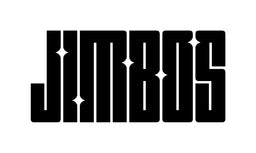Microfiber Towels vs Chamois vs Shammy (Which is Safest?)
For decades, the chamois (or “shammy”) was the go-to car drying tool. But times have changed. Today, microfiber towels are considered the safest option for modern clear coat and ceramic-coated cars. This guide compares microfiber towels, natural chamois, and synthetic shammy products so you can decide which is right for your detailing routine.
What is a chamois?
A chamois is traditionally made from sheepskin leather. It’s soft, absorbent, and reusable. However, it requires maintenance (staying damp to remain flexible) and doesn’t have the same dirt-trapping ability as microfiber. Over time, chamois fell out of favor due to scratching risks on delicate modern finishes.
What is a shammy?
A “shammy” is usually a synthetic version of a chamois, often made from PVA (polyvinyl alcohol). These are marketed as super absorbent and wringable. While they do soak up water, they tend to push water instead of lifting it away, which can drag dirt particles across paint.
What is a microfiber towel?
Microfiber towels are made from ultra-fine synthetic fibers, split to trap dirt and absorb water. They come in different GSM (thicknesses), pile heights, and sizes. For drying cars, twisted-loop and high GSM towels are the safest, most efficient option available today.
Key differences: microfiber vs chamois vs shammy
| Feature | Microfiber Towels | Chamois | Shammy |
|---|---|---|---|
| Absorption | Excellent, absorbs 7–10x its weight | Good, must stay damp | Good, absorbs well but wring required often |
| Scratch Risk | Very low when plush/edgeless | High, can drag dirt | Medium-high, pushes water/dirt |
| Ease of Use | No prep, machine washable | Needs care, can stiffen when dry | Must stay wet, wring often |
| Best Use | Paint, glass, interior, wheels | Classic drying (not recommended for modern finishes) | Budget drying (not coating safe) |
Why microfiber is the safest option
- Dirt trapping: Fibers lift particles off the surface instead of dragging them.
- Scratch prevention: Plush, edgeless towels reduce risk of micro-marring.
- Better drying: Modern microfiber absorbs more water with less wringing.
- Versatility: Can be used for paint, glass, interiors, wheels, and coatings.
- Longevity: Washable and reusable hundreds of times.
Best microfiber towels for drying
- Massive Drying Towel — twisted-loop drying towel that handles an entire car in minutes.
- Softer Than Soft Towels — perfect for delicate paint or final drying touches.
- Everyday Microfiber Towels — affordable, versatile workhorses for interiors and wheels.
FAQs
Is chamois bad for modern paint?
Yes. Chamois have no pile to trap dirt, so they often drag particles across paint and cause scratches.
Are synthetic shammy cloths safe?
They’re better than natural chamois, but still inferior to microfiber. They tend to push water around instead of fully absorbing it.
What type of microfiber towel is best for drying?
A large twisted-loop drying towel like the Massive Drying Towel.
Can I still use a chamois on wheels?
Yes, since wheels aren’t as sensitive as paint. But microfiber is still more effective and safer overall.
Do pros still use chamois?
No. Professional detailers almost exclusively use microfiber towels today.
Related Guides
- Best Microfiber Towels for Cars (Buyer’s Guide)
- Best Drying Towel for Ceramic Cars
- Best Budget Microfiber Towels



